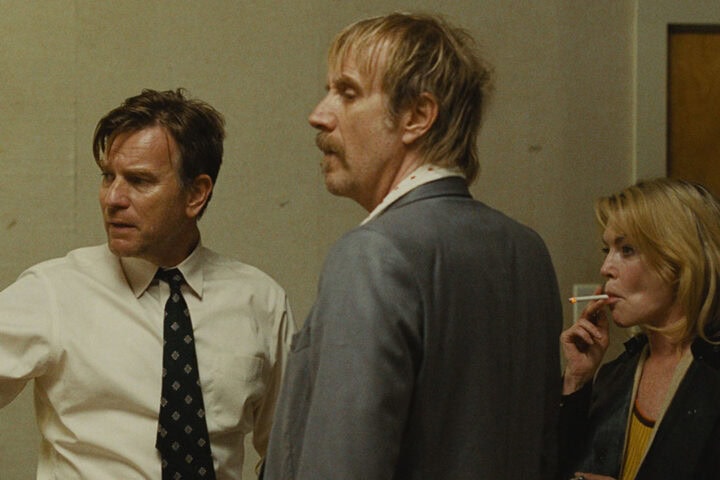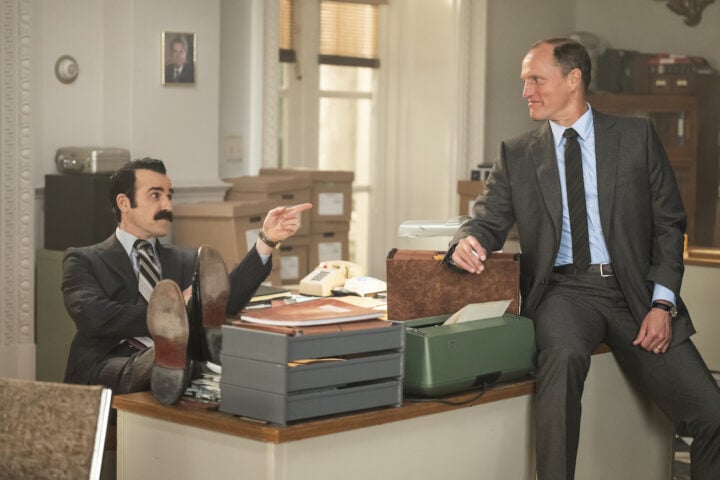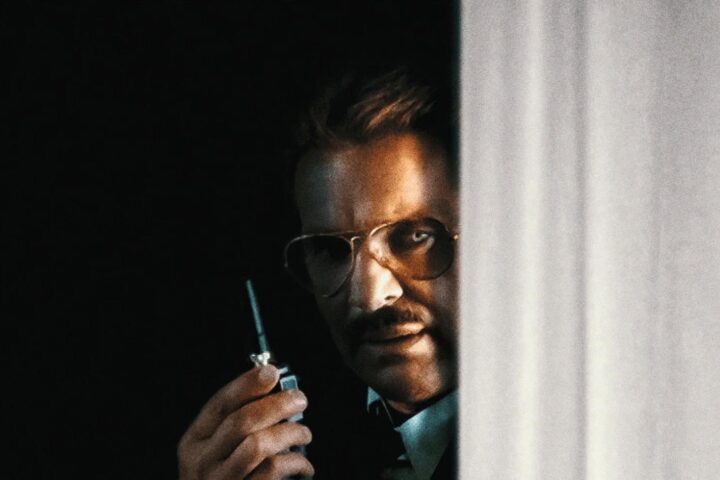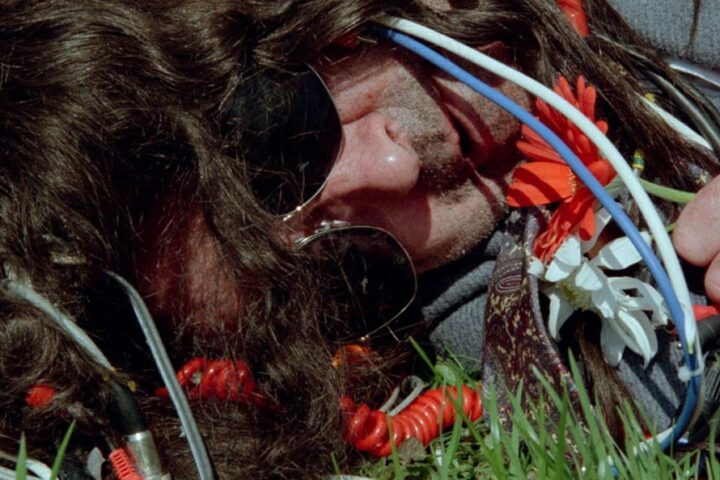 Miloš Forman’s Amadeus, adapted by Peter Shaffer from his 1979 play, isn’t technically a biopic, nor is it historically accurate. Still, it stands as one of the greatest film portraits of an artist for capturing the essence of their work. Wolfgang Amadeus Mozart has long been regarded as a genius for his innate skill, profligacy, and still-unmatched gift for instrumental melody. But of all his remarkable works across every style of music of his time, nowhere was Mozart more innovative than in the field of opera, and Amadeus is a suitably operatic treatment of his story: loud, emotive, volatile, and sweeping, blowing all facts out of proportion to reveal deeper truths.
Miloš Forman’s Amadeus, adapted by Peter Shaffer from his 1979 play, isn’t technically a biopic, nor is it historically accurate. Still, it stands as one of the greatest film portraits of an artist for capturing the essence of their work. Wolfgang Amadeus Mozart has long been regarded as a genius for his innate skill, profligacy, and still-unmatched gift for instrumental melody. But of all his remarkable works across every style of music of his time, nowhere was Mozart more innovative than in the field of opera, and Amadeus is a suitably operatic treatment of his story: loud, emotive, volatile, and sweeping, blowing all facts out of proportion to reveal deeper truths.
Of course, in what feels like one more callous, almost cosmic joke at the expense of its subject, the film’s protagonist isn’t, in fact, Mozart. That would be Antonio Salieri (F. Murray Abraham), the court composer to Holy Roman Emperor Joseph II (Jeffrey Jones) in Vienna. Popular and respected in his time, Salieri swiftly fell into obscurity after his death, and in the film’s framing device, which finds him at the end of his life in a sanatorium, he appears to be aware of how he will be consigned to history. As he speaks to Father Vogler (Richard Frank), the elderly Salieri relives his memories of enjoying comfort and favor at court until the day that Mozart (Tom Hulce) came to town and promptly unleashed a level of talent that humbled, even humiliated the Italian composer.
Salieri and Mozart are nothing if not two opposing forces. Salieri, a pious and comported figure in Viennese high society, stands as rigid as a rod, speaking softly and with all the elaborate courtesies and discretion with which one is expected to address a monarch. He could just as easily be mistaken for a courtier as a musician. Mozart, on the other hand, whirls into scenes like a dervish, his powdered wig splaying in all directions as he feverishly imagines his next compositions. He has no time for the decorum demanded of those wishing to submit their work for royal approval, and his boorish qualities are best exhibited in his donkey bray of a laugh, a shrill giggle that explodes out of him as if under pressure. Mozart offends everyone at court, and Salieri looks at upstart as if he’d like to do nothing more than throw him into the street.
But then, Mozart plays, or shows pages of his manuscripts, and Salieri is struck dumb by the young composer’s genius. Communicating even the basic ideas of composition to those unversed in music theory is incredibly difficult, but the film manages to convey the depth and originality of Mozart’s music chiefly through Abraham’s facial expressions as Salieri pores over his rival’s work. In one scene, he flips through a set of Mozart’s scores, the soundtrack swapping abruptly between compositions that match each sheet. The haughty disbelief on Salieri’s countenance melts into a mixture of tender awe at the complexity of Mozart’s orchestration, “finished as no music is ever finished.” It’s an accessible but remarkably resonant means of conveying the appeal of classical music, hinging on emotional engagement over theoretical knowledge.
Mingled with Salieri’s near-reverence, though, is an open agony that he could never dream up work this intricate. Salieri, who prayed as a child for the ability to compose and who was blessed with immense success, now curses God for giving him just enough ability to recognize Mozart’s genius without ever being able to reach it himself. Amadeus, then, becomes an epically staged treatise on the tragedy of “medium talent,” of lacking either the bliss of ignorance to passively and superficially enjoy art nor the true spark of originality to make one’s mark on history.

Amadeus is, fittingly, an opera buffa of Mozart’s life. It sands away the nuances of his career and personality in favor of a broad, bawdy play about a genius ahead of his time and a more successful but less accomplished senior who can only sit idly by and wait for history to obliterate him while elevating his rival. Further, it uses the composer’s work to comment on the action, underscore the conflict, and ultimately add shades to both Mozart and Salieri’s character traits.
Salieri dreams of killing his rival and stealing his work to pass off as his own, but ultimately he finds himself sitting at the young composer’s deathbed serving as his amanuensis, frantically jotting down the Requiem mass. The same professional jealousy that drives Salieri to madness ultimately makes him humble enough to bear witness to his superior’s final masterpiece, the highest reward that the self-professed “patron saint of mediocrities” can ever hope to enjoy.
Image/Sound
Warner’s 4K disc is sourced from a recent restoration of the long-unavailable theatrical cut, which, contrary to marketing of a later “director’s cut,” was Miloš Forman’s final cut. The transfer expertly captures the grandeur of the bright palatial settings, but even more impressive are the rich black levels of the candlelit interiors. Such scenes often looked too hazy on prior home video releases of Amadeus, but here fine detail is visible no matter how dim the lighting. Flesh tones are naturalistic and the bold reds and purples of high-society wardrobes practically pop off the screen. Film grain is well managed and natural throughout, and there are no visible artifacts. The 5.1 audio robustly mixes the many cues of Mozart’s music and its subtle orchestrations for every instrument amid the bustle of street noise and the various boisterous parties that he attends. Dialogue is always clearly balanced and legible.
Extras
Warner includes a new 23-minute retrospective that includes interviews with various members of the cast and crew, who reminisce about making Amadeus, its rapturous reception, and how it has defined their careers since. The disc also comes with an hour-long making-of assembled for the 2002 DVD release, and it remains a thorough document of the film’s production.
Overall
Warner Bros. presents Miloš Forman’s Amadeus in its original, superior cut with a gorgeous A/V transfer worthy of its operatic opulence.
Since 2001, we've brought you uncompromising, candid takes on the world of film, music, television, video games, theater, and more. Independently owned and operated publications like Slant have been hit hard in recent years, but we’re committed to keeping our content free and accessible—meaning no paywalls or fees.
If you like what we do, please consider subscribing to our Patreon or making a donation.





